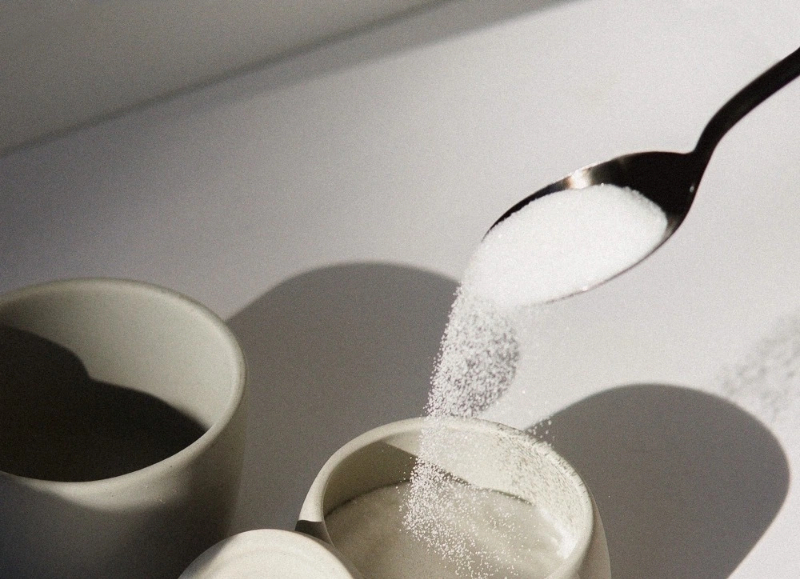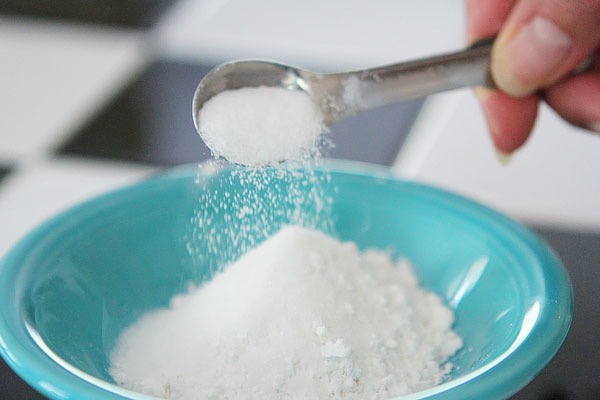Views: 222 Author: Sara Publish Time: 2025-07-22 Origin: Site








Content Menu
● Understanding Inflammation and Why It Matters
● Does Aspartame Cause Inflammation?
>> Evidence Supporting Aspartame-Induced Inflammation
>> Evidence Supporting Anti-Inflammatory Effects of Aspartame
>> Dose-Dependency and Context-Specific Effects
>> Impact of Aspartame on Different Populations
>> Broader Considerations for Sweeteners and Inflammation
● Aspartame in the Context of Comprehensive Diet and Lifestyle
● Industry Implications: Innovating with Health in Mind
● Frequently Asked Questions (FAQ)
>> 1. Does aspartame cause inflammation in everyone?
>> 2. Can aspartame worsen existing inflammatory conditions like arthritis?
>> 3. Is aspartame safe for people with autoimmune disorders?
>> 4. Are there sweeteners with anti-inflammatory properties?
>> 5. How can food manufacturers reduce the inflammatory risks of sweeteners?
Aspartame is a widely used artificial sweetener found in various food and beverage products globally. As a low-calorie sugar substitute, it has been embraced to help reduce sugar intake and manage weight and blood sugar levels. However, concerns have persisted regarding its safety, particularly its potential to cause inflammation in the body. This article explores the current scientific understanding of aspartame's relationship with inflammation, the biological mechanisms involved, and what this means for consumers, especially those in the food, beverage, and healthcare industries.

Aspartame is a non-nutritive sweetener composed of two amino acids: phenylalanine and aspartic acid. It is approximately 200 times sweeter than sucrose (table sugar), allowing it to provide sweetness with minimal calories. Due to its sweetness profile and low caloric content, it is commonly used in diet sodas, sugar-free chewing gum, low-calorie desserts, and other reduced-sugar products. It has been approved by regulatory authorities such as the U.S. Food and Drug Administration (FDA) and the European Food Safety Authority (EFSA) based on extensive safety evaluations.
Inflammation is a fundamental biological response of the immune system triggered by harmful stimuli such as pathogens, damaged cells, or irritants. While acute inflammation is necessary for healing and protection against infections, chronic inflammation is implicated in numerous health conditions, including cardiovascular disease, diabetes, arthritis, and autoimmune disorders. Chronic low-grade inflammation often arises from lifestyle and dietary factors, making it a critical focus for health-conscious consumers and industries involved in health solution products.
Chronic inflammation contributes to tissue damage and plays a pivotal role in the progression of metabolic and degenerative diseases. As a result, understanding dietary components that can either promote or reduce inflammation is essential for product developers, healthcare professionals, and consumers alike.
Several studies suggest that aspartame may stimulate the production of pro-inflammatory cytokines, which are signaling molecules that promote inflammation. When aspartame is consumed, it breaks down into its constituents—phenylalanine, aspartic acid, and methanol. Some researchers hypothesize that these metabolites could influence inflammatory pathways. Methanol, in particular, metabolizes into formaldehyde and formic acid in the body, which at high levels may generate oxidative stress and trigger inflammatory responses.
In certain experimental models, aspartame consumption was linked to elevated levels of inflammatory markers such as tumor necrosis factor-alpha (TNF-α) and interleukin-6 (IL-6). These cytokines are commonly associated with the body's inflammatory reactions and are involved in the pathogenesis of chronic diseases. This suggests that for some individuals, especially those sensitive to artificial additives or those consuming excessive amounts, aspartame might provoke or exacerbate inflammation.
More recent research also indicates that aspartame consumption may aggravate atherosclerosis, a chronic inflammatory disease of the arteries. The proposed mechanism involves an insulin-mediated inflammatory pathway where aspartame affects glucose metabolism and insulin signaling, which in turn promotes vascular inflammation. This finding is particularly relevant to individuals with metabolic syndrome, type 2 diabetes, or existing cardiovascular risk.
Aspartame has also been classified by some scientists as a neurotoxin in very high doses. The body's immune system might recognize such compounds as foreign or harmful, leading to a localized inflammatory response. Although typical dietary intake is considered safe, chronic exposure or high dosages could theoretically contribute to neuroinflammation and related neurological conditions in sensitive populations.
Interestingly, other studies show contrasting evidence with some experimental animal models demonstrating anti-inflammatory effects of aspartame. For instance, research in rats administered aspartame at specific doses (4 and 8 mg/kg) reported a reduction in inflammation markers. Additionally, aspartame exhibited analgesic (pain-relieving) and antipyretic (fever-reducing) effects, which are characteristic of anti-inflammatory agents.
These findings highlight a complex relationship where the impact of aspartame might depend heavily on dosage, the organism under study, and specific health conditions. These anti-inflammatory effects are not fully understood but suggest that aspartame could potentially modulate immune responses differently depending on the biological context.
The conflicting results from different studies underscore that aspartame's effect on inflammation is dose-dependent and context-specific. At low or moderate doses, aspartame may be well-tolerated without provoking inflammation, and in some cases, may even reduce certain inflammatory parameters. At higher doses or in individuals with pre-existing sensitivity, adverse inflammatory responses might occur.
Moreover, metabolic variations among individuals—including differences in microbiota composition, enzymatic activity, and immune system regulation—contribute to how aspartame is processed and its subsequent effects on inflammation. Therefore, generalized conclusions about aspartame causing or preventing inflammation must be carefully qualified.
- Individuals with autoimmune or inflammatory diseases: Although regulatory agencies deem aspartame safe for the general population, people with autoimmune diseases or chronic inflammatory conditions may experience heightened sensitivity. There is insufficient clinical evidence to conclusively determine whether aspartame worsens these conditions, but caution and monitoring consumption is advisable.
- Healthy general consumers: Most healthy individuals tolerate aspartame without significant negative effects. Its contribution to systemic inflammation is likely minimal if consumed within recommended daily intake limits. However, cumulative effects from multiple food additives and sweeteners may influence inflammation collectively.
- Metabolically compromised individuals: Those who are insulin resistant, diabetic, or at risk for cardiovascular disease may be more susceptible to inflammation linked to aspartame, especially through mechanisms involving insulin signaling pathways.
It is important to recognize that many artificial sweeteners have been scrutinized for potential health effects—including inflammation—but the mechanisms and outcomes vary widely. This has led manufacturers to explore natural sweeteners, functional polyols, and fiber-based sweetening solutions as alternatives that may have fewer risks and additional health benefits.
In fact, integrating functional ingredients such as dietary fibers, antioxidants, and plant-derived bioactives with sweeteners is emerging as a promising strategy to reduce inflammation risk while satisfying consumer demand for healthy products. Such formulations can modulate gut microbiota, enhance metabolic health, and lower systemic inflammation, aligning well with current trends in food, beverage, and healthcare products.

The inflammatory potential of aspartame must be evaluated within the broader context of an individual's overall diet and lifestyle. Diets high in processed foods, sugars, saturated fats, and other pro-inflammatory components contribute significantly more to chronic inflammation than moderate aspartame consumption alone.
Balancing sweetener intake with nutrient-dense, fiber-rich foods, regular physical activity, adequate hydration, and stress management profoundly influences inflammation and overall health. Thus, while aspartame may contribute to inflammation in isolation or excess, it is one factor among many in a complex interplay affecting immune function and chronic disease risk.
For food, beverage, and healthcare manufacturers, awareness of aspartame's complex inflammatory profile encourages innovation towards healthier sweetening alternatives. Focusing on natural sweeteners, functional multi-polyol blends, and fiber-enriched formulations supports developing products that cater to consumers seeking reduced sugar and reduced inflammation.
Offering customized OEM/ODM sweetener solutions that prioritize health, safety, and functionality is a competitive advantage in global markets increasingly driven by wellness trends. Combining sweetening efficacy with the promotion of gut health and anti-inflammatory benefits exemplifies next-generation ingredient design.
The relationship between aspartame and inflammation is multifaceted and not fully resolved. Scientific evidence indicates that aspartame can induce inflammation in certain settings, particularly through cytokine activation and insulin-mediated pathways associated with vascular inflammation. Conversely, some experimental data show that aspartame may have anti-inflammatory effects at specific doses. The impact varies by dose, individual susceptibility, and existing health conditions.
For consumers, moderate aspartame intake within regulatory guidelines is generally safe, but those with inflammatory or metabolic disorders should approach consumption cautiously. For manufacturers and healthcare professionals, combining aspartame with natural functional ingredients or exploring alternative sweeteners offers promising strategies to mitigate potential inflammation risks.
Ultimately, aspartame is one component in the overall dietary pattern that influences inflammation. Maintaining a balanced diet and healthy lifestyle remains essential to minimizing chronic inflammation and supporting long-term health.

No, aspartame does not cause inflammation in everyone. It may trigger inflammatory responses mainly in sensitive individuals or when consumed in excessively high amounts. Individual metabolic and immune differences play a crucial role in its impact.
While some studies suggest aspartame may aggravate inflammation related to metabolic diseases, its direct effect on conditions like arthritis is less certain. Individuals with inflammatory diseases should monitor symptoms and consult healthcare providers regarding aspartame use.
The safety of aspartame for people with autoimmune disorders is not fully established. Some experts recommend cautious consumption or avoidance since it could potentially trigger inflammatory immune responses in sensitive individuals.
Yes, certain natural sweeteners and functional blends incorporating dietary fibers, antioxidants, and plant extracts demonstrate anti-inflammatory benefits. These alternatives can offer sweetness alongside health-promoting effects.
Manufacturers can reduce risks by using multi-functional sweetener blends that include natural anti-inflammatory ingredients, minimizing synthetic sweetener quantities, and formulating products rich in dietary fiber and antioxidants to support immune health.
